DSG Transmission Service Cost: Procedure and Interval Breakdown
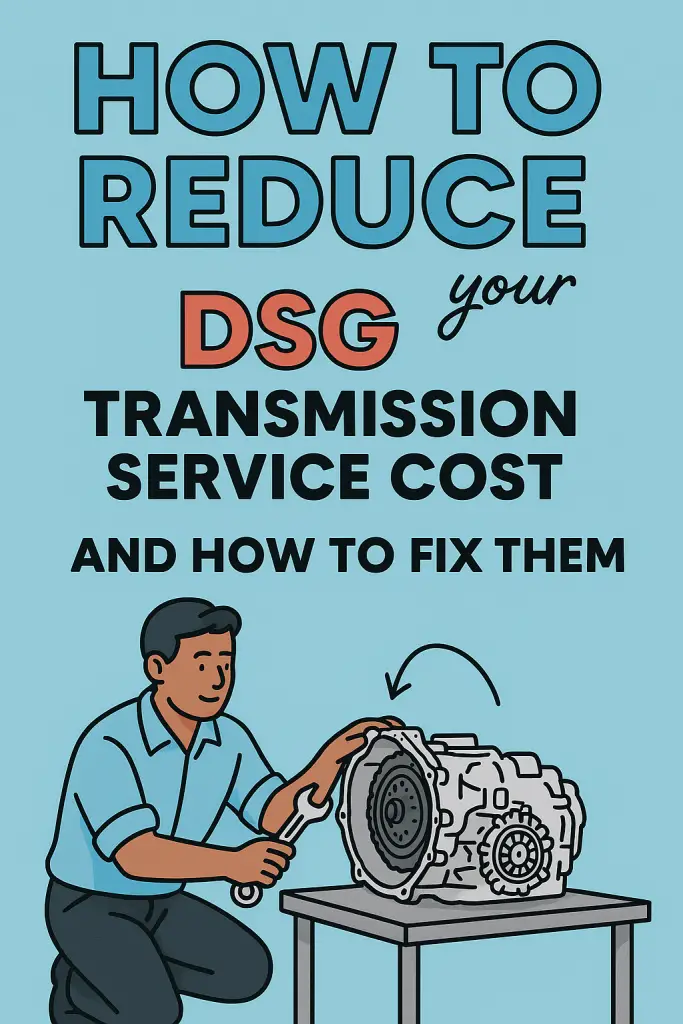
A DSG (Direct Shift Gearbox) transmission offers quick gear changes and smooth performance, but it requires specific maintenance to keep working at its best. Skipping service can lead to expensive repairs and reduced driving performance. On average, a DSG service costs between $500 and $800, with most vehicles needing it every 40,000 miles.
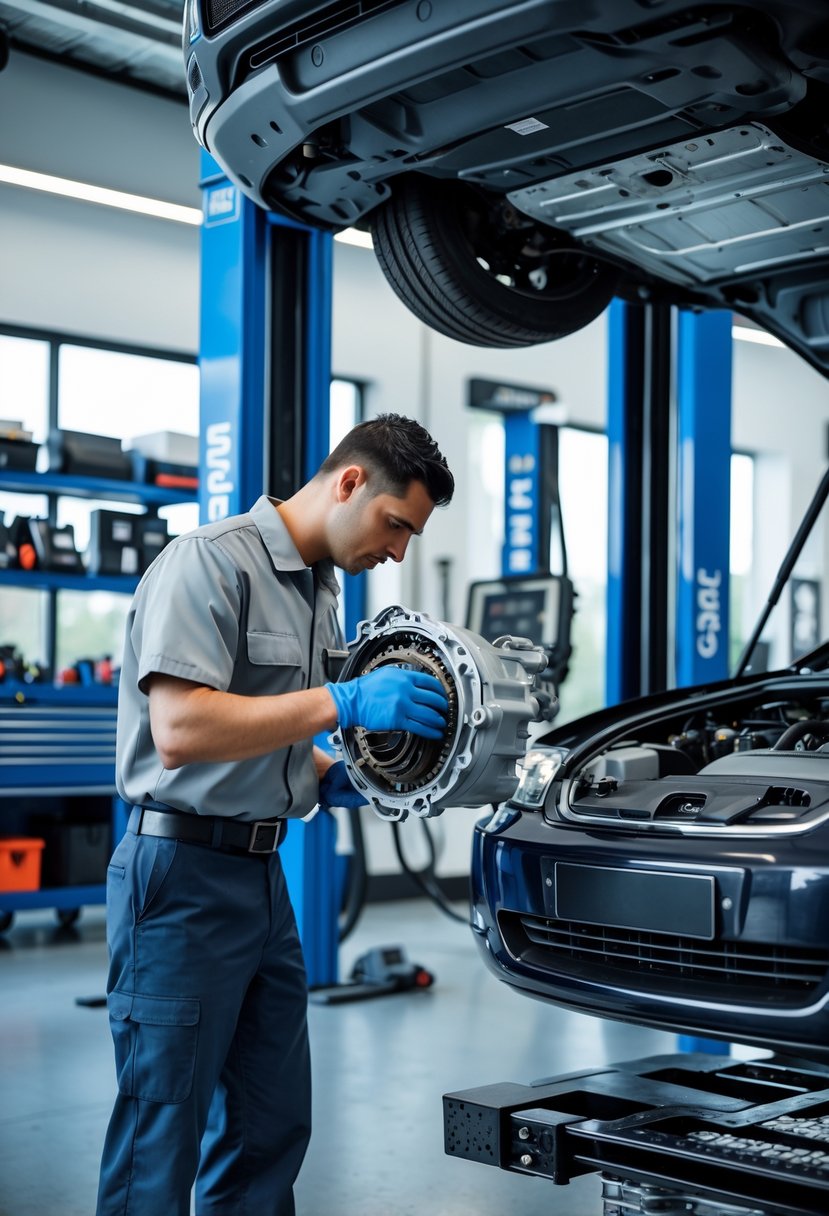
During service, technicians replace the transmission fluid and filter, check seals, and may recalibrate the control unit. This process keeps the gearbox shifting smoothly, prevents premature wear, and helps avoid common issues like jerky shifting or mechatronic unit faults.
Knowing the cost, procedure, and service intervals in advance makes it easier to plan maintenance and avoid surprise expenses. By understanding what happens during a DSG service and why it matters, owners can protect both performance and long-term reliability.
How Much Does A DSG Transmission Service Cost?

The cost of a DSG service depends on parts, labor rates, and the type of vehicle. In most cases, the price ranges between $500 and $800 at the 40,000-mile service interval.
Labor charges usually make up $130–$160 of the total. Dealerships often charge more than independent workshops, but they may include warranty protection and factory-trained technicians.
Parts and fluids are the largest expense. DSG transmission oil can cost about $300, while a new filter is around $30–$40. Small items like seals, washers, and bolts usually cost $5–$30 each.
A typical cost breakdown for a standard DSG service might look like this:
| Item | Estimated Cost (USD) |
|---|---|
| Transmission Oil | $300 |
| Filter | $30–$40 |
| Seals/Washers/Bolts | $5–$30 each |
| Labor | $130–$160 |
| Misc. Repairs | $100–$500 |
Some owners choose a DSG service kit, which includes oil, filter, seals, and tools. These kits usually cost $150–$200 for aftermarket options and can reduce overall service expenses if the work is done outside a dealership.
Location, vehicle model, and any additional repairs can increase the price. High-performance or heavy-duty models, such as certain Audi or VW variants, may require more frequent servicing or higher-grade fluids, which can raise costs.
DSG Gearbox Service Costs Comparison
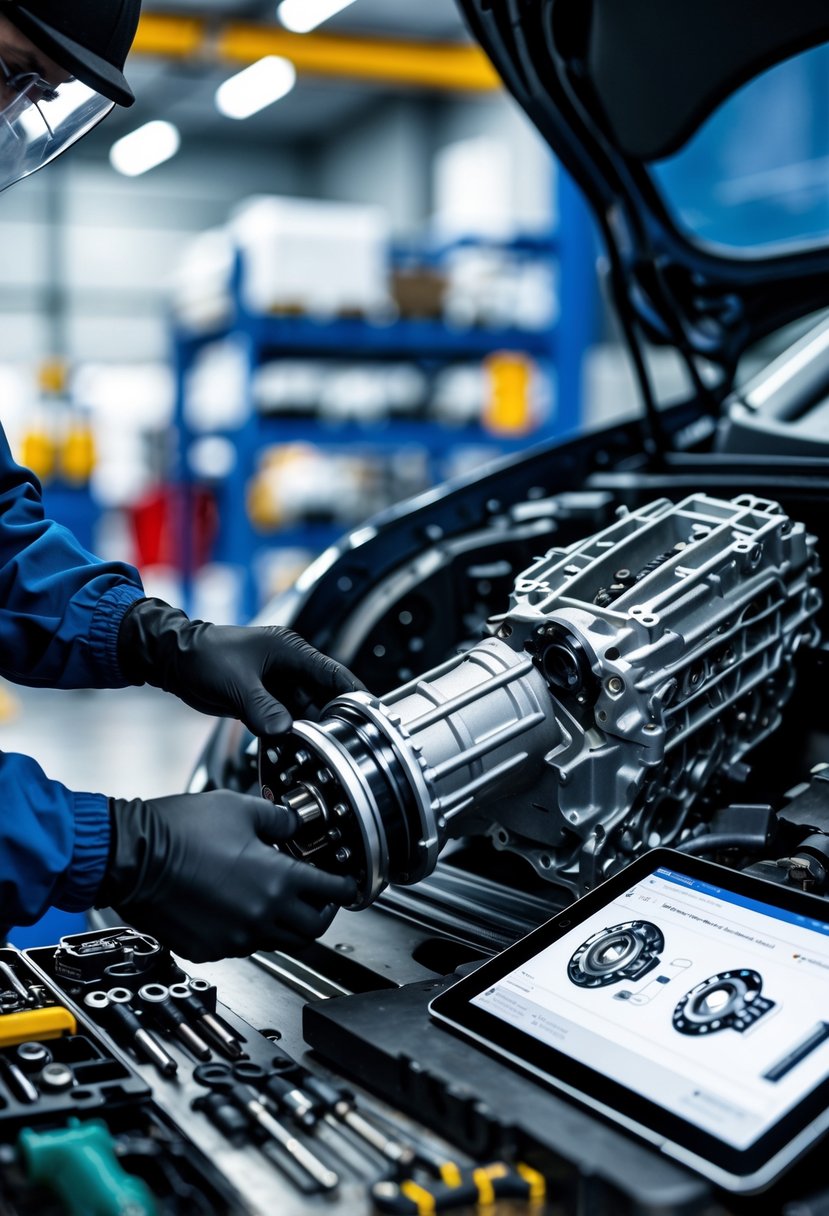
DSG service prices vary depending on location, service provider, and whether OEM or aftermarket parts are used. Dealerships often charge more than independent workshops, but they typically use factory-trained technicians and genuine parts.
A standard DSG service includes fluid replacement, filter change, and inspection of key components. Labor costs in the U.S. usually range from $130 to $160, with parts adding a significant portion to the total bill.
Typical Cost Breakdown (U.S. average):
| Item | Cost Range | Notes |
|---|---|---|
| Labor | $130 – $160 | Higher at dealerships |
| Transmission oil | $250 – $300 | Special DSG fluid required |
| Filter | $30 – $40 | OEM or aftermarket available |
| Seals, washers, small parts | $5 – $30 each | Often replaced during service |
| DSG service kit | $150 – $200 | Includes oil, filter, seals, and tools |
In most cases, a routine DSG service costs $500 to $800 at a dealership. Independent garages may complete the same service for $400 to $600, depending on parts used.
Some regions show notable price differences. For example, Washington and New York often see labor at $160, while San Diego averages $130. Parts prices remain more consistent nationwide.
Using aftermarket kits can reduce costs, but OEM components may provide better long-term reliability. The choice depends on the vehicle’s warranty status and the owner’s maintenance preferences.
How Much is DSG Service? (Cost Breakdown)
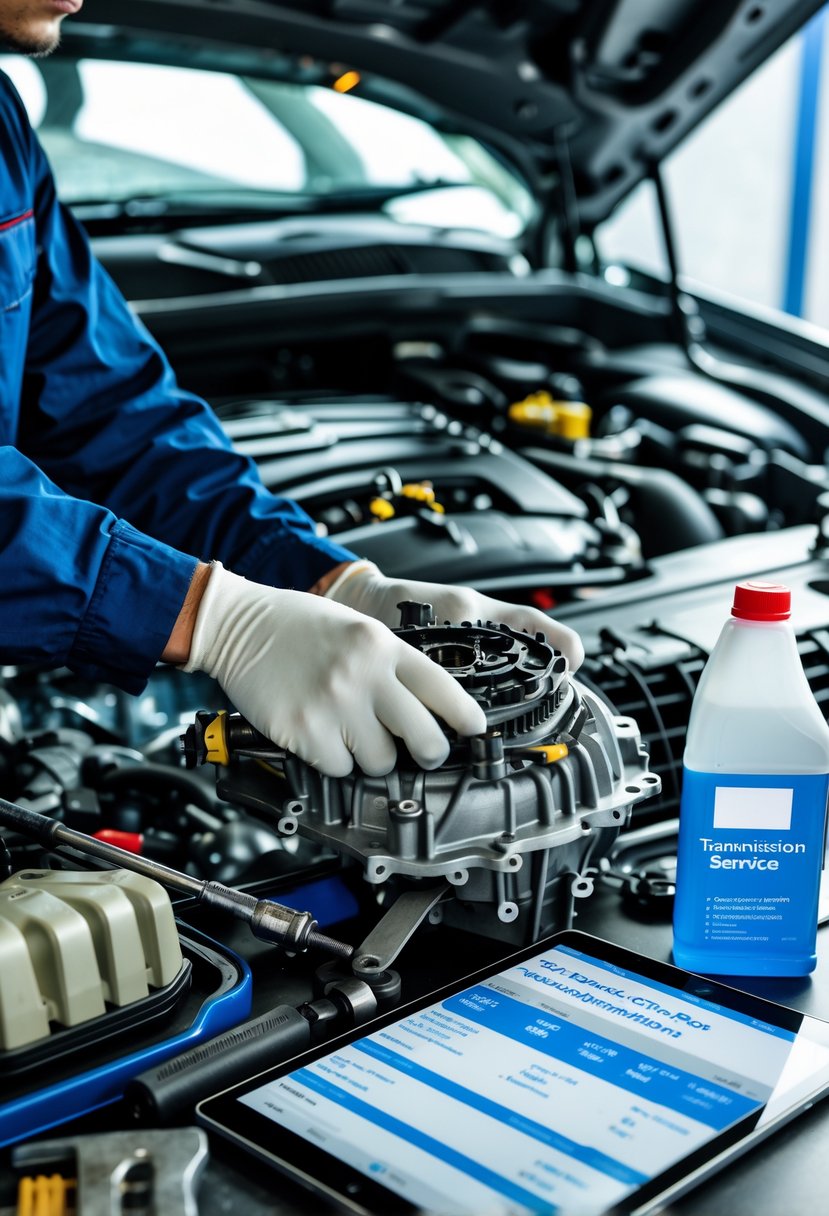
The cost of a DSG service depends on labor rates, parts, and whether the work is done at a dealership or independent shop. Most owners can expect to spend between $500 and $800 for a routine 40,000-mile service.
Labor is a significant part of the bill. In the U.S., typical rates range from $130 to $160, with dealerships often charging more than independent specialists. Location and the condition of the transmission can also affect the final price.
Parts and fluids make up the rest of the cost. DSG transmissions require specific dual-clutch oil and a filter, along with seals and small hardware. Transmission fluid alone can cost around $300, while filters are usually $30–$40.
A standard DSG service kit, which includes oil, filter, seals, and necessary tools, typically costs $150–$200. Using OEM parts generally costs more but may offer better durability compared to aftermarket options.
Below is a sample cost breakdown for a typical DSG service at an authorized dealer:
| Item | Estimated Cost |
|---|---|
| Parts & Fluids | $375 |
| Labor | $150 |
| Misc. Repairs | $100–$500 |
| Taxes | $150 |
| Total | $850 |
Unexpected repairs, such as fixing a mechatronic fault or replacing worn components, can push the price higher. Regular servicing helps reduce the chance of these extra costs.
VW DSG Gearbox Service Cost
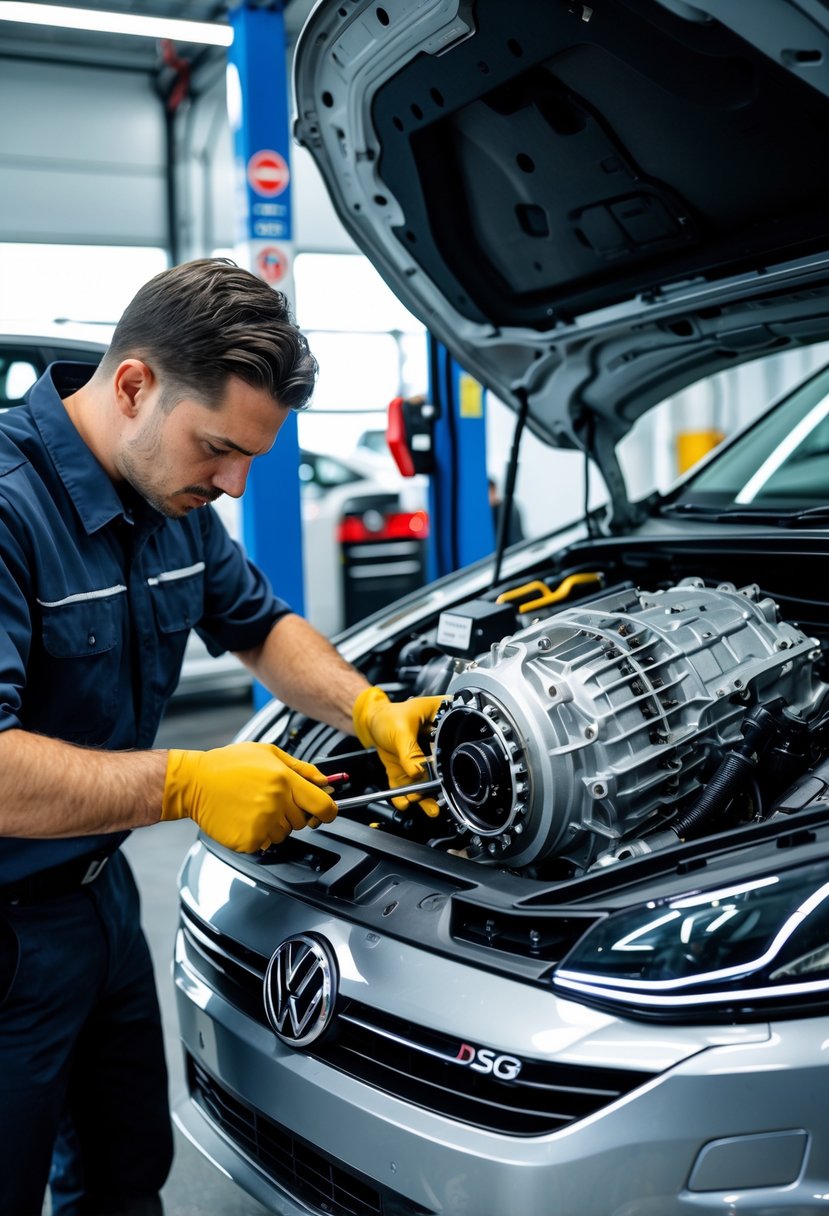
Servicing a Volkswagen DSG gearbox usually costs between $500 and $800 at the recommended 40,000-mile interval. This range covers labor, parts, fluids, and any small repairs found during the service.
Labor charges make up a significant portion of the cost. At most U.S. locations, labor averages $130–$160, with dealership rates often higher than independent workshops.
Parts and fluids are the most expensive items. DSG-specific transmission oil can cost around $300, while the filter is typically $30–$40. Small components like seals, washers, and bolts usually add $5–$30 each.
A standard DSG service kit—containing oil, filter, seals, and required tools—costs about $150–$200. Some owners choose premium kits, such as Liqui Moly, which include high-quality oil and durable components.
Below is a sample cost breakdown for a DSG service at a dealership:
| Item | Estimated Cost |
|---|---|
| Parts & Fluids | $375 |
| Labor | $150 |
| Misc. Repairs | $100–$500 |
| Taxes | $150 |
| Total | $850 |
Independent shops may charge less, but using factory-trained technicians helps ensure proper procedures and may protect the vehicle’s warranty.
Costs can rise if problems like mechatronic unit issues, clutch wear, or flywheel damage are found during the service. Regular maintenance helps reduce the risk of these expensive repairs.
DSG Transmission Service Cost Overview
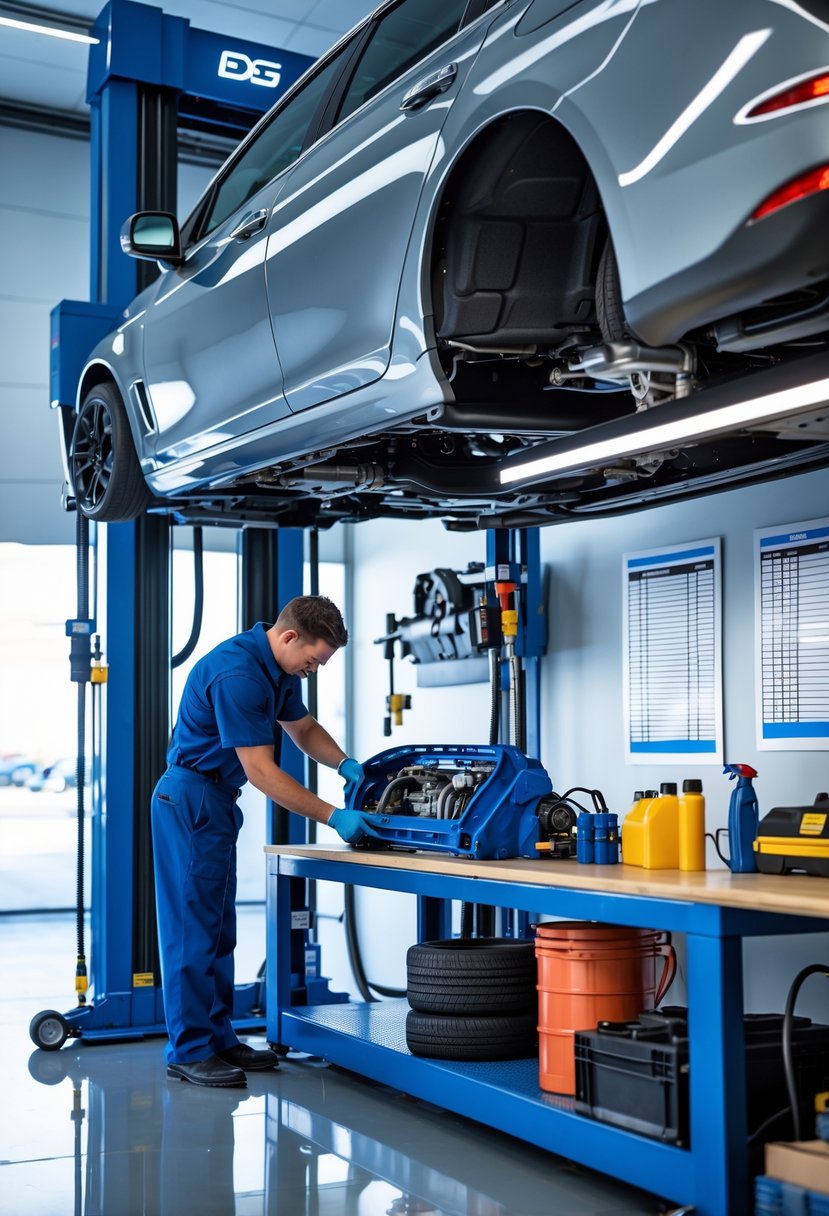
Servicing a DSG (Direct Shift Gearbox) transmission involves costs for labor, parts, and specialized fluids. Prices vary depending on vehicle model, location, and whether the work is done at a dealership or an independent shop. Regular maintenance helps prevent expensive repairs and keeps the dual-clutch system operating smoothly.
Average Cost Breakdown
A typical Volkswagen or Audi DSG service at the recommended 40,000-mile interval costs $500–$800 in the U.S.
This range includes labor, parts, and fluids. Dealerships often charge more than independent workshops due to higher hourly rates and OEM part pricing.
A basic cost structure may look like this:
| Item | Typical Cost (USD) |
|---|---|
| Labor | $130–$160 |
| Transmission oil (6–7 liters) | $250–$300 |
| Filter | $30–$40 |
| Misc. seals/washers/bolts | $20–$50 |
| Taxes & shop fees | $50–$150 |
High-performance models, such as the Audi S4 or R8, can cost more due to higher fluid capacity and additional calibration steps.
Labor Charges
Labor costs for a DSG service are typically $130–$160 at most U.S. locations.
This covers draining and refilling the fluid, replacing the filter, and performing any required TCU (Transmission Control Unit) calibration.
Labor rates vary by region:
- Washington, DC – $160
- Chicago – $150
- San Diego – $130
Authorized dealers usually have factory-trained technicians and access to manufacturer tools, which can improve service quality but increase the bill. Independent VW/Audi specialists may offer lower rates while still using correct procedures and equipment.
Parts and Kit Pricing
The DSG requires specific transmission oil and a filter designed for the dual-clutch system.
OEM fluid costs about $40–$50 per liter, with most services needing 6–7 liters. The filter is about $30–$40. Small parts like O-rings, washers, and bolts usually add $15–$50.
A complete DSG service kit—including oil, filter, seals, and necessary tools—costs $150–$200 for aftermarket options. OEM kits are often more expensive but match factory specifications.
For example, a Liqui Moly DSG kit includes quality DCT oil, filter, gaskets, and fittings, and is popular among independent shops for its balance of cost and performance.
DSG Transmission Service Procedures

A DSG transmission uses a dual-clutch system that requires specific maintenance steps to keep it shifting smoothly. Key tasks include replacing worn fluids and filters, removing contaminants from the system, recalibrating control units, and checking for early signs of component wear or failure.
Fluid and Filter Replacement
The DSG gearbox relies on specialized transmission fluid to lubricate clutches, gears, and the mechatronic unit. Over time, heat and friction degrade the oil, reducing its ability to protect components.
During service, the old fluid is drained, and the DSG filter is replaced to remove particles and metal debris. This helps maintain proper hydraulic pressure and reduces wear on clutch packs.
Most manufacturers recommend using OEM-spec DSG fluid to ensure correct viscosity and thermal stability. The refill process often requires a fluid pump and precise measurement to avoid overfilling or underfilling, both of which can cause shifting problems.
A typical 6-speed or 7-speed DSG service at 40,000 miles includes both the fluid and filter change, which is essential to prevent internal damage and costly repairs.
System Flush and Calibration
A system flush removes old fluid from internal passages, clutch assemblies, and the mechatronic valve body. This step helps eliminate sludge or residue that could restrict fluid flow.
Some technicians also perform TCU (Transmission Control Unit) calibration after the flush. This process resets or adapts shift points and clutch engagement settings to match the fresh fluid characteristics.
Calibration is especially important if the driver has noticed jerky shifts or delayed engagement. It ensures the mechatronic unit applies the correct hydraulic pressure for smooth gear changes.
Special diagnostic tools are often required for calibration. In many cases, this step is performed at authorized dealerships or workshops with the correct software.
Inspection of Mechatronic Unit
The mechatronic unit is the electronic and hydraulic control center of a DSG transmission. It manages clutch actuation, gear selection, and communication with the engine control unit.
During service, technicians inspect the unit for oil contamination, worn seals, or damaged wiring. These issues can cause shifting errors, warning lights, or limp mode.
If faults are detected, the unit may require cleaning, seal replacement, or in some cases, complete replacement.
A diagnostic scan can reveal stored error codes related to solenoid valves or pressure sensors. Addressing these early can prevent further damage to the dual-clutch system and reduce repair costs.
Recommended DSG Service Intervals
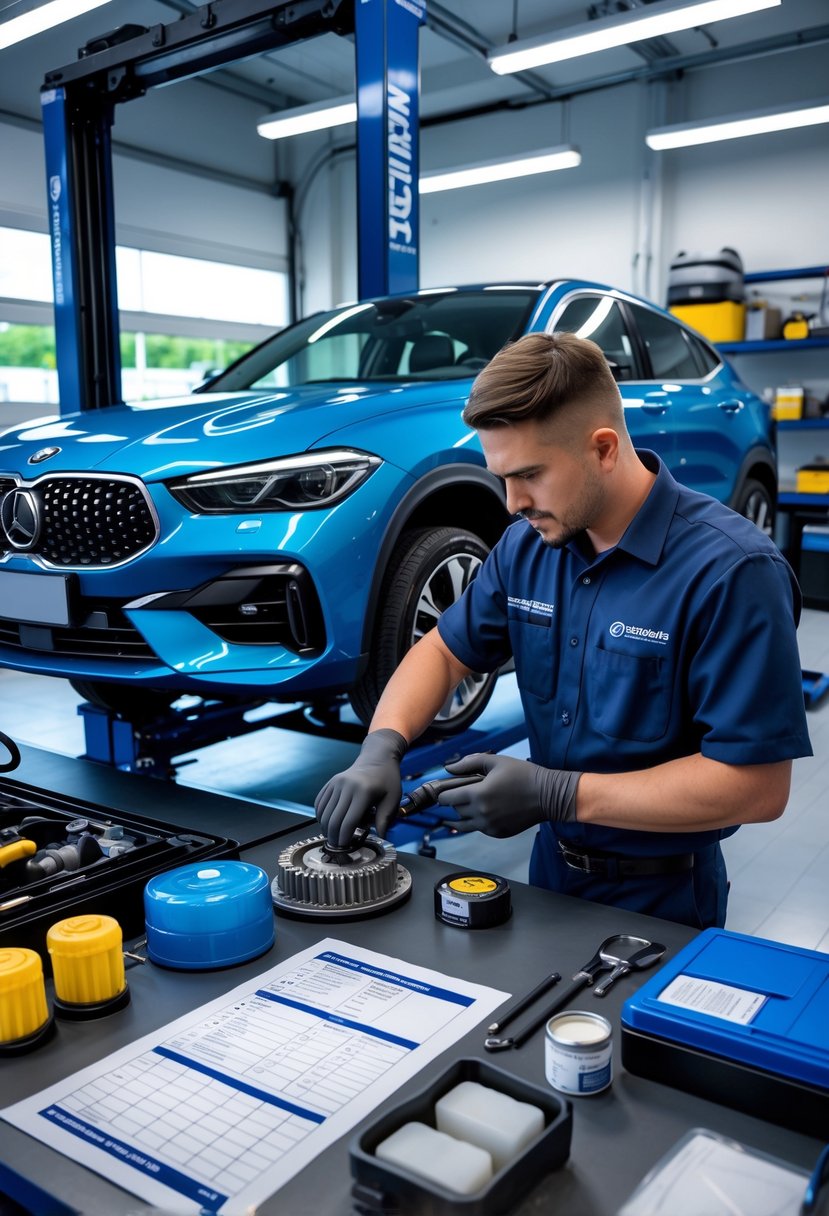
DSG transmissions, also known as Direct Shift Gearboxes, require routine maintenance to maintain smooth shifting and prevent premature wear. Service intervals are based on manufacturer specifications, but actual needs can vary depending on the DSG type, vehicle model, and driving conditions.
Manufacturer Guidelines
Volkswagen and Audi generally recommend DSG servicing every 40,000 miles for most 6-speed wet-clutch units. This includes fluid replacement, filter change, and system checks.
Some newer 7-speed dry-clutch DSG units may have longer intervals, but they still require periodic inspections. In certain cases, the service interval may extend to 50,000 miles if the manufacturer specifies it.
Following the official schedule helps keep warranty coverage valid and ensures the gearbox operates within design limits. Skipping scheduled maintenance can lead to issues like clutch wear, mechatronic faults, or fluid contamination.
Owners should check the vehicle’s service manual for the exact mileage and procedures, as not all DSG or DCT systems share the same requirements.
Interval Variations by Model
Different DSG variants have different service schedules.
- 6-speed wet-clutch DSG (DQ250) – Typically serviced at 40,000 miles.
- 7-speed dry-clutch DSG (DQ200) – May have longer intervals, often 60,000 miles or more, but still benefits from earlier fluid checks.
- High-performance models such as the Audi TT or R8 may require servicing as early as 35,000 miles due to higher stress loads.
Some models also have paired systems like Haldex AWD units, which require their own maintenance schedules. In combined service visits, both systems can be maintained to save labor costs.
Service intervals also differ between regions, as environmental factors and fuel quality can influence fluid life and component wear.
Impact of Driving Conditions
Driving style and environment can shorten DSG service intervals.
Frequent stop-and-go traffic, towing, or aggressive acceleration increases clutch and fluid temperatures, which can degrade oil faster. In these cases, servicing at 30,000–35,000 miles may be advisable.
Cold climates can also affect DSG performance, as thicker fluid in low temperatures may strain components until warmed. Similarly, dusty or sandy environments can increase contamination risk, making earlier filter changes beneficial.
For vehicles used in severe-duty conditions, Volkswagen and other manufacturers often recommend following the shorter end of the service range. This proactive approach reduces the risk of costly repairs from mechatronic or clutch damage.
Factors Influencing DSG Service Cost
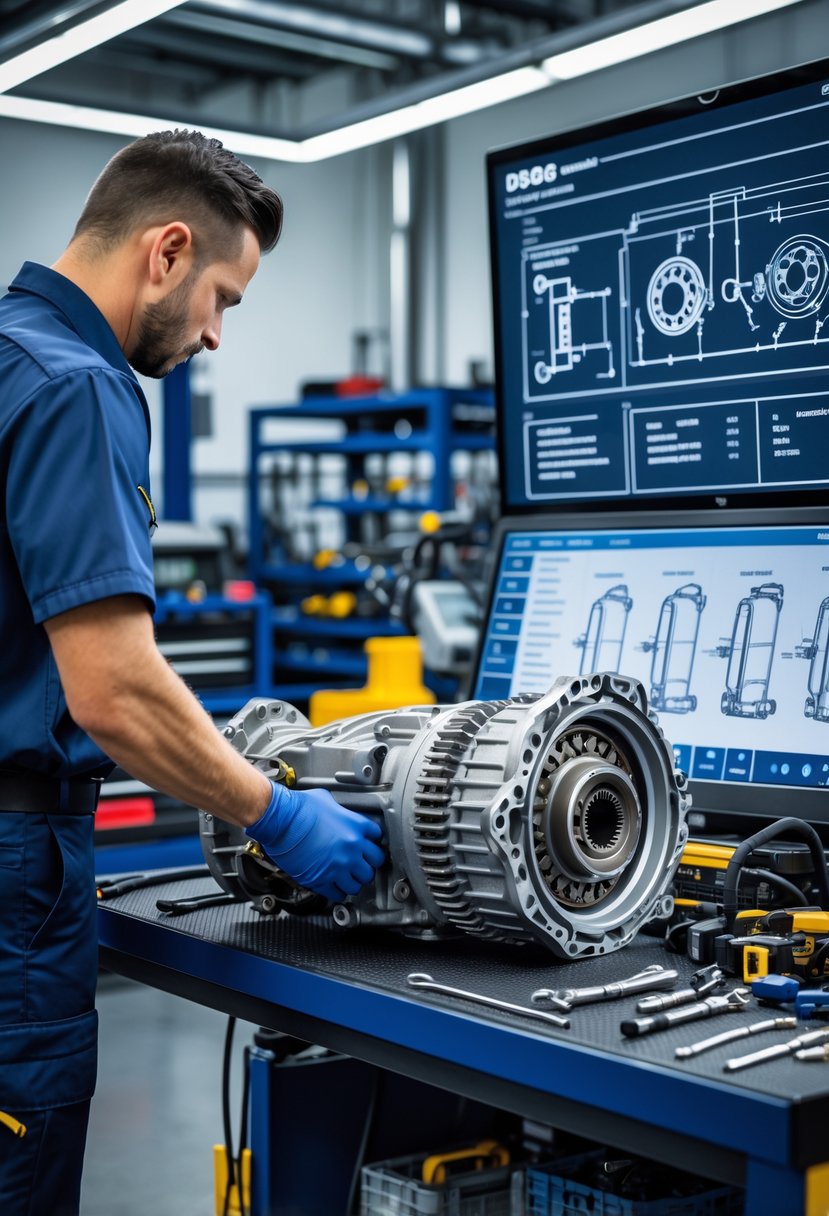
The cost of a DSG service depends on where the work is done and the type of parts used. Labor rates, parts quality, and included services can change the final price by hundreds of dollars.
Dealership vs. Independent Workshop
Volkswagen and Audi dealerships often charge higher labor rates, sometimes $150–$200 per hour. This is partly due to factory-trained technicians, brand-specific diagnostic tools, and the use of genuine OEM parts.
Dealerships may also follow the exact manufacturer procedure, which can include adaptation resets and additional inspections. This can increase both cost and thoroughness.
Independent workshops usually have lower hourly rates, often $90–$130 per hour. Many specialize in European vehicles and have the tools to perform DSG services to factory standards.
However, some smaller shops may skip certain steps, like checking fluid temperature with a scan tool, if the customer is focused on reducing cost. Asking for a detailed service list helps ensure the same level of work.
| Service Location | Typical Cost (DQ250 6-speed DSG) | Pros | Cons |
|---|---|---|---|
| Dealership | $350–$500 | OEM parts, factory-trained techs | Higher cost |
| Independent Shop | $250–$400 | Lower labor rates, flexible parts | Quality varies |
OEM vs. Aftermarket Parts
OEM DSG service kits from Volkswagen or Audi typically cost $120–$180 for fluid, filter, and seals. These parts meet the exact specifications of the original transmission.
Aftermarket kits can cost $80–$140 and may use fluid that meets or exceeds VW/Audi specifications. Some reputable brands match OEM quality, while others may not have the same long-term durability.
Choosing OEM parts ensures compatibility and maintains warranty coverage. This is important for newer vehicles still under factory or extended warranty.
Aftermarket parts can lower costs, especially for older vehicles where warranty is no longer a concern. The savings can be significant, but the owner should confirm that the fluid meets the correct DSG specification (such as VW G 052 182 A2 for many DQ250 units).
Common DSG Transmission Issues and Preventive Maintenance

DSG transmissions can develop mechanical or electronic faults if maintenance schedules are ignored. Problems often involve the control system, clutch components, or lubrication, which can lead to shifting issues, reduced performance, and costly repairs. Addressing early warning signs and following service intervals helps reduce the risk of major failures.
Mechatronic Unit Failure Risks
The mechatronic unit controls gear selection and clutch engagement in a dual-clutch transmission. It works with the vehicle’s ECU and sensors to manage smooth shifting.
Failure can occur from worn solenoids, electrical faults, or contaminated fluid. Symptoms may include delayed gear changes, failure to engage gears, or sudden loss of drive.
Overheating and dirty transmission oil are common causes of damage. Using the correct DSG fluid and replacing it at the recommended interval helps protect the unit.
If a mechatronic unit fails completely, replacement can cost several thousand dollars. Early detection through diagnostic scans can prevent full failure and reduce repair expenses.
Signs of Transmission Problems
Drivers may notice jerky or hard shifts, hesitation when accelerating, or unusual noises from the gearbox. These signs often point to clutch wear, fluid degradation, or control unit issues.
Another warning sign is the transmission entering “limp mode,” which limits gears to prevent further damage. This can be triggered by mechatronic faults, overheating, or sensor errors.
Fluid leaks from the transmission housing, especially near the drain plug or seals, can also indicate a problem. Low fluid levels reduce lubrication and cooling, leading to accelerated wear.
Prompt inspection when these symptoms appear can prevent minor issues from becoming major repairs.
Benefits of Regular Servicing
Regular DSG maintenance keeps the transmission operating within its designed tolerances. A standard service includes:
| Service Task | Purpose | Interval* |
|---|---|---|
| Fluid change | Maintains lubrication & cooling | ~40,000 miles |
| Filter replacement | Removes debris from hydraulic system | ~40,000 miles |
| Mechatronic recalibration | Restores shift accuracy | As needed |
*Intervals vary by model and usage conditions.
Servicing prevents fluid contamination, reduces heat buildup, and ensures smooth clutch operation. It also allows technicians to spot early signs of wear or component failure.
Following the manufacturer’s schedule is the most effective way to extend the life of a DSG transmission and avoid unexpected breakdowns.
Understanding the DSG Transmission System

The Direct Shift Gearbox (DSG) is a type of dual-clutch transmission (DCT) designed to improve shift speed and efficiency. It uses two separate clutches to manage odd and even gears, allowing faster gear changes and smoother power delivery compared to many traditional automatic gearboxes.
How the Dual-Clutch System Works
A DSG uses two clutches inside a single housing—one for odd-numbered gears (1, 3, 5, 7) and another for even-numbered gears (2, 4, 6).
While one clutch engages the current gear, the other pre-selects the next gear. This design allows near-instant gear changes without interrupting power flow to the wheels.
The system is controlled by a mechatronic unit, which combines electronics, sensors, and hydraulics to manage clutch engagement and gear selection. It works with the engine control unit (ECU) to optimize shift timing for performance and fuel efficiency.
Because the DSG relies on precise hydraulic pressure and lubrication, the transmission fluid plays a critical role. It acts as both a lubricant for moving parts and a hydraulic medium for clutch operation. Maintaining correct fluid quality and level is essential for smooth operation.
Differences from Conventional Automatics
A conventional automatic transmission uses a torque converter to transfer power from the engine to the gearbox. In contrast, the DSG uses clutches for direct mechanical engagement, which reduces power loss.
Unlike a standard automatic, the DSG behaves more like a manual gearbox internally but shifts automatically. This results in quicker gear changes and often better fuel economy under certain driving conditions.
However, the DSG requires specific maintenance. Fluid and filter changes are more critical than in many torque converter automatics because the clutches and mechatronic unit depend on clean, high-quality oil. Neglecting service can lead to issues like jerky shifts, clutch wear, or mechatronic faults.
Would you like me to now write the next section about the DSG service procedure so it flows naturally from this one?
What do you pay for DSG service?
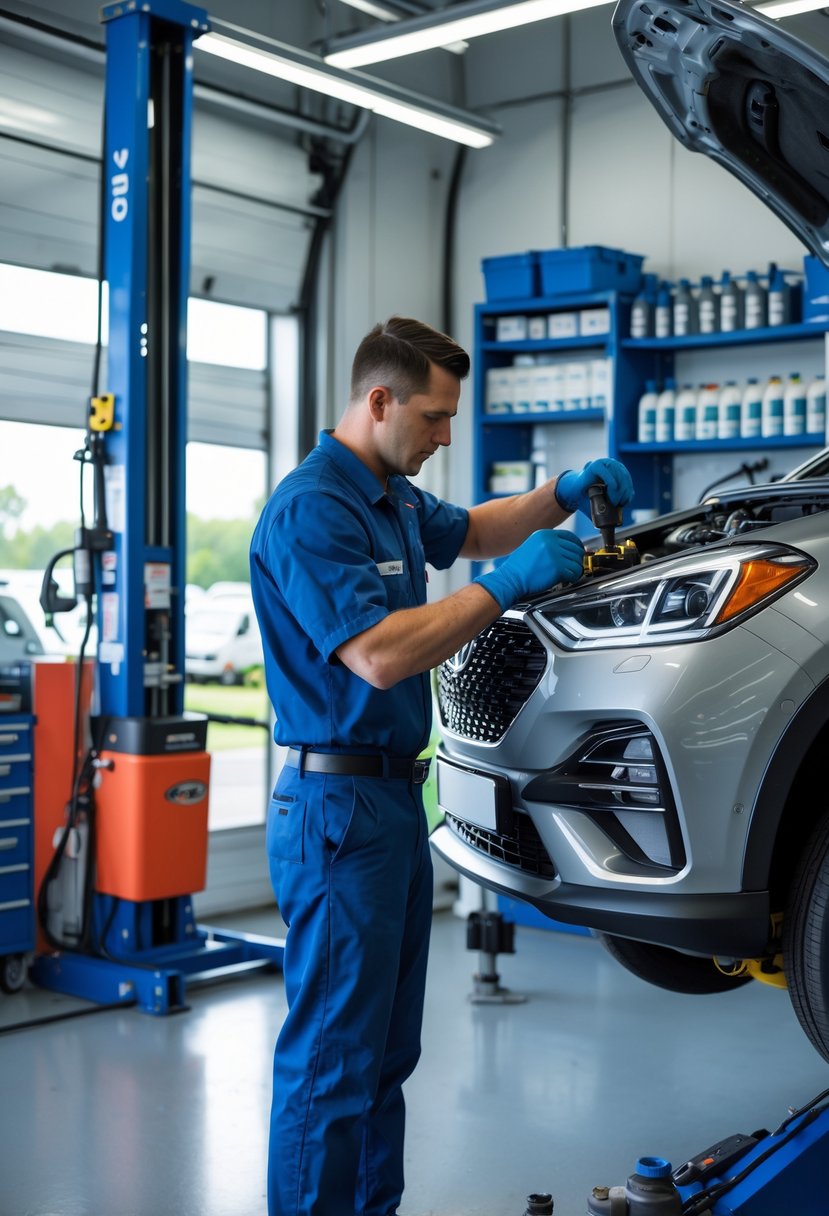
The cost of a DSG (Direct-Shift Gearbox) service depends on labor rates, parts prices, and where the work is done. Authorized dealerships often charge more than independent workshops, but they may include factory-trained technicians and warranty protection.
On average, routine DSG servicing ranges from $500 to $800 at a dealership. This includes fluid, filter, seals, labor, and any small parts replaced during the process. Independent shops may complete the same service for less, often between $300 and $600.
A typical cost breakdown looks like this:
| Item | Estimated Cost (USD) |
|---|---|
| Transmission fluid | $250–$300 |
| Filter | $30–$40 |
| Seals, washers, bolts | $5–$30 each |
| Labor | $130–$160 |
| Misc. repairs (if any) | $100–$500 |
Labor rates vary by location. For example, service in San Diego may cost around $130 for labor, while New York or Washington can be closer to $160.
Some owners choose to buy a DSG service kit, which includes fluid, filter, and seals, for about $150–$200. This can reduce costs if they handle the labor themselves or supply the kit to a shop.
Extra repairs, such as fixing mechatronic issues or replacing a flywheel, add to the bill. These are not part of standard servicing and can significantly increase the total price.
Frequently Asked Questions
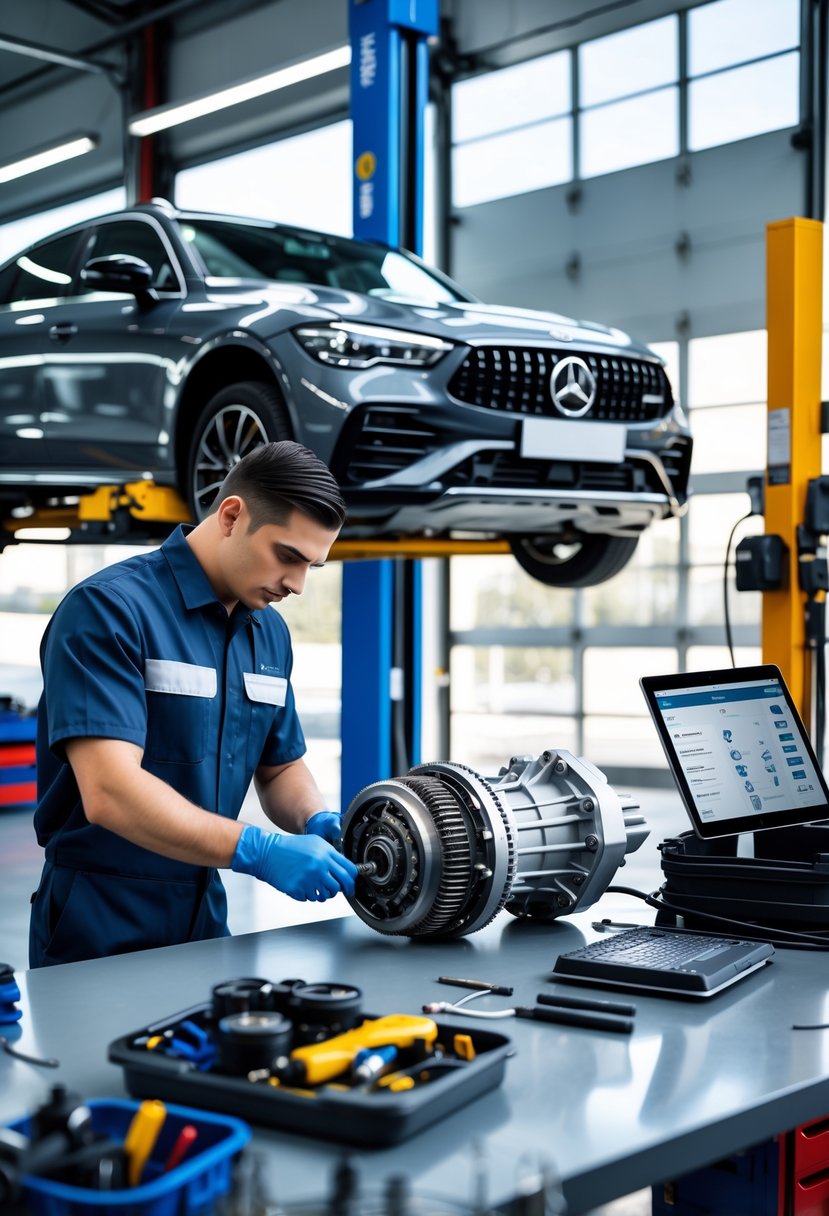
DSG transmissions have set maintenance schedules, specific fluid requirements, and service procedures that vary by model. Costs depend on gearbox type, parts used, and labor rates, with noticeable differences between dealership and independent shop pricing.
How often should a DSG transmission be serviced?
Most 6-speed DSG gearboxes require service every 40,000 miles. Some high-performance or heavy-duty models may need it slightly earlier, around 35,000 miles. Certain 7-speed dry-clutch DSG units can have longer intervals, but following the manufacturer’s schedule is the safest approach.
What is the typical cost range for servicing a 6-speed DSG transmission?
A standard 6-speed DSG service usually costs $500–$800 in the U.S. This range includes labor, fluid, filter, and small parts. Dealerships often charge more than independent shops, but both can perform the work if they have the correct tools and experience.
What does a standard DSG transmission service include?
A typical service involves draining and replacing the transmission fluid, installing a new filter, replacing seals or washers, and performing a system calibration. Some services also include a system flush and inspection for wear or damage.
Are there different service requirements for 7-speed DSG gearboxes compared to 6-speed?
Yes. Many 7-speed DSG gearboxes use a dry-clutch design that requires different fluid and may have longer service intervals than the wet-clutch 6-speed version. However, some 7-speed wet-clutch units still follow the 40,000-mile schedule.
What should I expect to pay for a 7-speed DSG oil change?
A 7-speed DSG oil change can cost $250–$400 for labor and fluid only, depending on whether it is a wet- or dry-clutch version. Wet-clutch models typically cost more because they require more fluid and sometimes a filter replacement.
Where can I find a reputable service center for DSG transmission maintenance?
Owners can visit authorized Volkswagen or Audi dealerships, which have factory-trained technicians and OEM parts. Skilled independent transmission specialists with experience in DSG systems can also perform the service, often at a lower cost. Checking reviews and confirming DSG-specific expertise is important before booking.
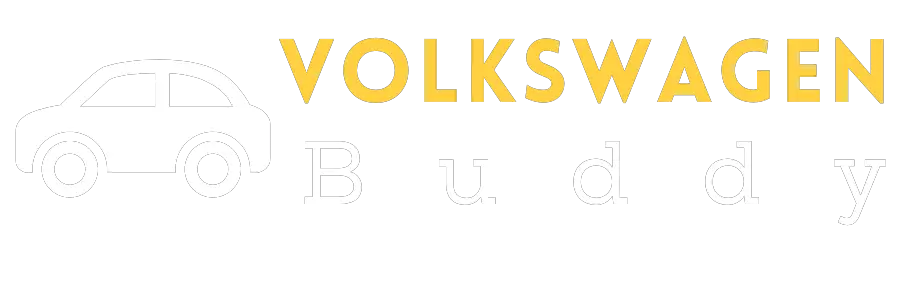


![7E8 Engine Code Volkswagen Jetta [Answered]](https://volkswagenbuddy.com/wp-content/uploads/2024/05/7e8-engine-code-volkswagen-jetta-answered_4165-768x531.jpg)

![2010 Volkswagen Gti Metallic Rattle On Take Off [With Solution]](https://volkswagenbuddy.com/wp-content/uploads/2024/05/2010-volkswagen-gti-metallic-rattle-on-take-off-with-solution_4521-768x531.jpg)
![2012 Volkswagen Routan All Door Power Is Off [Causes & Proven Fixes]](https://volkswagenbuddy.com/wp-content/uploads/2024/05/2012-volkswagen-routan-all-door-power-is-off-causes-proven-fixes_4528-768x531.jpg)